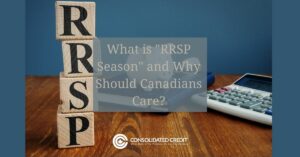A growing trend in Canada is retirees returning to the workforce, often called “unretirement.” Many older Canadians are choosing or needing to work again after retirement due to a mix of financial necessity, economic uncertainty, and personal reasons such as staying active or pursuing new interests. This shift is partly driven by rising living costs and concerns about retirement savings, as many Canadians find their savings or pension income insufficient to cover their expenses.
This trend has a significant impact on both individual finances and the broader economy. For individuals, returning to work can improve financial security and reduce reliance on government benefits. For the economy, the participation of older workers helps offset labour shortages caused by the retirement of baby boomers, supporting economic growth and maintaining the supply of skilled workers.
Key reasons for unretirement in Canada
In recent years, more Canadians are choosing to “unretire,” meaning they return to work after retiring. This trend is becoming increasingly common for several reasons, especially as the cost of living rises and the nature of retirement changes. Here are the main factors driving unretirement in Canada:
Financial pressures
Many retirees are finding that their savings and government pensions are not enough to support the lifestyle they want. With inflation and the rising cost of essentials like housing, groceries, and healthcare, it can be difficult for retirees to make ends meet. Some may even be dealing with debt or trying to pay off their debt. Traditional pension plans are becoming less common, and some people may even still have a mortgage or other debts after retirement. As a result, returning to work can help provide extra income and financial security.
Personal or social reasons
Work is not just about money for many people. After retiring, some Canadians feel bored, lonely, or isolated without the daily routine and social connections that work provides. Going back to work can help them stay active, maintain a sense of purpose, and interact with others. This can lead to better mental health and a more fulfilling unretirement experience.
Financial implications
As more Canadians continue working past the traditional retirement age, there are important financial effects for individuals and the country as a whole. Understanding the impact of this growing trend can help us see why some retirees choose to keep working. In turn, we can also anticipate what it means for the Canadian economy.
Personal finances – How it helps retirees
- Increased income: Continuing to work allows retirees to earn extra money, which can help cover daily expenses, medical costs, and unexpected bills.
- Delayed pension withdrawals: By working longer, retirees can delay taking money from their pensions or government benefits like the Canada Pension Plan (CPP), which can result in higher monthly payments later.
- Improved financial security: Earning a paycheck after retirement age can reduce the risk of running out of savings and help retirees maintain their standard of living. It can help retirees pay off their debt or even avoid going into debt.
Broader economic impact
- Increased labour force participation: When more older Canadians stay in the workforce, it helps fill job gaps and supports businesses facing worker shortages. On the other hand, it may also affect youth employment ratios.
- Boost to the economy: Retirees who keep working continue to pay taxes and spend money, which benefits the economy.
- Reflects insufficient social safety net: The trend of working longer may also show that Canada’s pensions and social programs may not always be enough to support everyone in retirement.
Saving in Retirement
Saving money in retirement is key to making your income last.
- Start by making a budget to track your spending and cut non-essential costs.
- Take advantage of any discounts and look for deals on travel, groceries, and entertainment for older individuals.
- Consider downsizing your home or moving to a more affordable area to lower living costs.
- Keep track of your government benefits like CPP and OAS, and consider delaying these benefits for higher payments.
- Keep your savings growing by using Tax-Free Savings Accounts (TFSA) or Registered Retirement Income Funds (RRIF), which let your money earn interest and reduce taxes on withdrawals.
- Use tax-efficient accounts, such as TFSAs, for flexible, tax-free withdrawals.
- Review your investments regularly to ensure they match your needs and risk level.
- Finally, set aside an emergency fund to avoid dipping into your savings unexpectedly.
Small changes add up, helping your money last longer in retirement.
Unretirement job choices
Unretiring can look like a number of different things. People choose various jobs, with some people going back to the same field or even the same job they had before. This is seen in cases where they enjoyed their work or have valuable, in-demand skills. For example, retired teachers might choose to take up substitute teaching positions, or nurses may work in clinics part-time. They are appreciated for their vast and varied experience, and may in fact find it easier to get hired in roles they are familiar with. A 2025 study found that over half of the respondents plan to continue working in retirement.
On the other hand, many look for simpler or less stressful jobs when they unretire. They may choose part-time or seasonal positions, or jobs that allow for greater flexibility. Many also gravitate towards working in retail or community centres. These roles can offer social interaction, a sense of structure and purpose, without the pressure of a full-time career. Another 2025 study found that 85% of respondents believe retirement is about transitioning to flexible work or passion projects, instead of stopping work entirely.
Things to consider before “unretirement”
- Impact on benefits: Before deciding to return to work after retiring, there are several important factors to consider. One of the biggest considerations is the impact on government benefits. Earning additional income could affect your Canada Pension Plan (CPP) and Old Age Security (OAS) payments, potentially reducing the amount you receive or even triggering the OAS clawback for higher incomes.
- Work preferences: Many Canadians see retirement as a chance to pursue flexible work or passion projects rather than full-time employment. Think about whether you want part-time work, seasonal jobs, or volunteer roles that fit your lifestyle and health needs.
- Healthcare considerations: Provincial health plans cover doctor visits and hospital stays, but prescriptions, dental, vision, and paramedical care are not fully covered. Retirees may need private or group health insurance to manage these extra costs. An unretirement job can help with these costs and avoid large or unexpected medical expenses.
- Tax implications: Tax implications are also crucial. Additional employment income may push you into a higher tax bracket, leading to a larger tax bill at year-end. Consult a tax professional to understand how your new income will be taxed and how it could influence your overall financial picture.
- Financial and future planning: Rising living costs and economic uncertainty mean that many retirees worry about outliving their savings. Reviewing your financial goals, updating your budget, and possibly working with a financial advisor can help ensure your unretirement supports your long-term security and well-being.
Key takeaways
Unretirement is becoming more common in Canada as people live longer and want to stay active or need extra income. Many Canadians are choosing to return to work after retiring, whether for financial reasons or to stay connected with their communities. This trend can help address labour shortages and allow retirees to share their valuable experience. Overall, unretirement offers benefits for both individuals and the Canadian economy by keeping skilled workers engaged. It can help people stay afloat financially and cover their living expenses without going into debt. If you’re currently dealing with debt, you can contact one of our trained credit counsellors for advice – they can help you figure out which debt solution could be the right fit for your specific situation.





